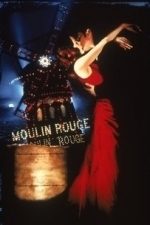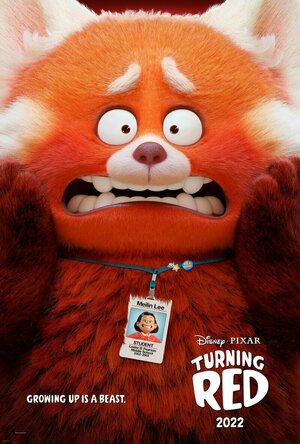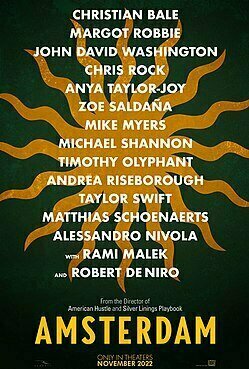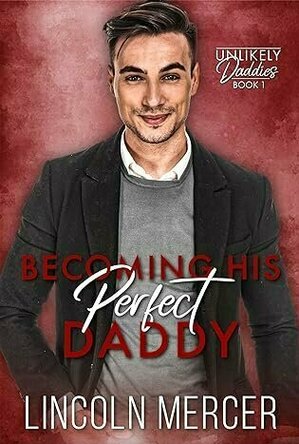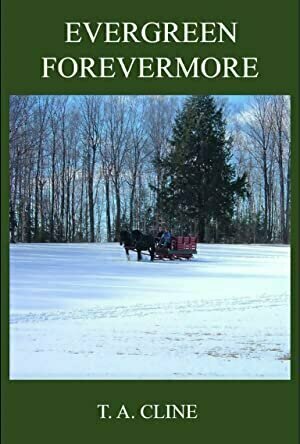
Comic Caption Meme Maker
Comics, Entertainment and Photo & Video
App
Transform your pictures into authentic looking comics! Add word balloons, stickers, and filters to...
BankofMarquis (1832 KP) rated Moulin Rouge! (2001) in Movies
Apr 15, 2020
Yes...it's that good.
Set at the turn of the century (the 19th to the 20th century) during the Bohemian Revolution in Paris, MOULIN ROUGE tells the tale of the...you guessed it...the Moulin Rouge theater/club where a young writer (Ewan McGregor) gets pulled into the lives of the artists and others trying to make a living, falling in love with a young courtesan, Satine (Nicole Kidman) all under the watchful eye of Harold Zidler (Jim Broadbent).
But it is not the story, but the telling of the story that sets this film apart. It is chaotic, wild, colorful, sexy, grimy, loving, alcoholic and spectacular - all things that not only describe this film, but the Moulin Rouge itself. Directer Baz Luhrman really shines in his vision of this picture that juxtaposes colorful sets and costumes, unique characters and songs and dance and music that tells the tale in a a unique way.
Oh...did I mention that most of this music is MODERN music? From Elton John's YOUR SONG to Roger's and Hammerstein's THE SOUND OF MUSIC to LADY MARMALADE to the ingenious use of Sting's ROXANNE (in a tango scene no less), this film is an amalgam of song that fits each scene perfectly. At what first seems incongruous, upon further viewings, the songs are slyly picked to accent the emotions and dramatic purpose of each scene.
As for the acting, McGregor and Kidman are beautifully cast (pun intended) as the young lovers. Their good looks radiate across the screen and I thought they had great chemistry. John Leguzamo and the other "Bohemians" pop in and out and are uniquely outrageous without being annoying. Richard Roxburgh's antagonist, "the Duke", came across in this viewing as not nearly as annoying as I have found him to be previously. Maybe there is more to this character/performance than meets the eye.
But it is Jim Broadbent's portrayal of the Master Shoman, Harold Zidler, that steals this film for me. He is a cunning and ingenious showman who (more than once) proves that he will stop at nothing for the "show to go on", but there are many notes to Zidler, at once in control and at the same time trying to KEEP control of events spiraling out of his control that actually shows a desperate man doing whatever he can to survive.
Add all these ingredients up and you have a film that gets deeper and richer with each subsequent viewing. I have yet to get tired of this film - and I am looking forward to the next time I immerse myself into this world.
Letter Grade: A +
10 stars (out of 10) and you can take that to the Bank(ofMarquis)

Europa-Park
Travel and Entertainment
App
Welcome to the Europa-Park App 5.5! Unbelievable – over 900 top reviews for our last version! We...

Diary Journal - Easy & Best Voice Record Meeting Notes Vault Private Events Own Picture Background & Social Buzz
Food & Drink and Lifestyle
App
***** Top Quality and Rich Features of Lifestyle App ***** Works on iPad1 & iPad2 Now new version...

Pepi Super Stores
Education and Games
App
Welcome to Pepi Super Stores — the most amazing stores on the planet! Join our characters and...
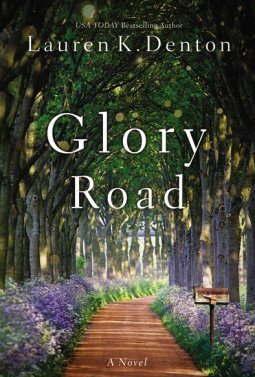
Glory Road
Book
Written in Lauren Denton’s signature Southern style, Glory Road tells the story of three...
Fiction Romance Women's Fiction
Gareth von Kallenbach (980 KP) rated Turning Red (2022) in Movies
Mar 7, 2022
Set in 1990s Toronto, the film centers around 8th grader Mei (Rosalie Chiang), who considers herself an adult at 13 and eagerly applies herself to school when she is not helping her family tour business at a local Temple or hanging with her friends.
Life comes crashing to a halt when after a traumatic day of embarrassment; Mei awakens in the form of a large Red Panda. In a panic, Mei attempts to hide her situation which causes her over-protective mother to assume it is Puberty related and that her hormones are kicking in.
Mei desperately wants to get her life back to normal and learns that as long as she is calm her Panda is under control. However, this proves to be harder than expected and soon Mei learns that the Panda is the result of a family bloodline but there is a way to end it during a Lunar ceremony in a couple of weeks.
Chaos soon follows as Mei struggles with her situation and must find a way to cope with the changes that are going on and make some very important decisions about her life and her future.
The film is a difficult one to review for me as never having been a teenage girl dealing with puberty, raging estrogen, and the issues that go with it. That being said the film struggles to find a balance as it tacks on the capers of Mei in Panda form without being overly funny or charming and keeps the focus on Teen Angst, puberty-related issues and becoming an adult.
The film lacks the interesting characters, charm, and appeal that have set the foundation for so many Pixar films and it is surprising that a company that can elicit a range of emotions in an animated short fail to really connect with their latest feature. There were some amusing parts but the film as a whole was rather dull and lacked much in the way of humor and was very predictable.
The decision to put the film directly on Disney+ as the studio’s recent “Soul” and “Luca” was raised some controversy but in the end, I do believe it was the right decision as “Turning Red” is not likely to be a film that draws people to the cinema beyond the opening weekend.
It is a film that is a bold step for the company, but one that lacks the charm and humor of previous films as not everyone is going to want to sit through a feature-length film on teenage angst and dealing with changing bodies and the emotional turmoil that follows. However, the target audience is likely to connect with the characters and it will be interesting to see what the reaction to the film is long-term.
3 stars out of 5
“Turning Red” will debut on Disney+ on March 11th
BankofMarquis (1832 KP) rated Amsterdam (2022) in Movies
Nov 21, 2022
The latest film from this cinematic auteur, AMSTERDAM, is jam-packed with stars from Christian Bale to John David Washington to Margot Robbie, Robert DeNiro, Zoe Saldana, Rami Malek, Andrea Riseborough, Chris Rock, Michael Shannon, Michael Myers, Timothy Olyphant, Any-Taylor Joy and even Taylor Swift show up to play part in this drama/thriller/comedy that takes a real life event and gives it the David O. Russell touch.
And…what is the David O. Russell touch? It is - for better or for worse - a skewed perspective of the goings-on in the film, commenting on the action while driving a narrative forward. On the one hand, he is liked by many actors for he let’s them improvise and work through their performances. However, on the other hand, if he is not getting what he wants, he is also known as a antagonistic Director as he has had on-set feuds with George Clooney, Lilly Tomlin and Amy Adams. But…on the other hand…he has been nominated for Best Director 3x and quite a few of his actors (Bale, Adams, Cooper, Jennifer Lawrence, etc.) have been nominated for an Oscar.
For AMSTERDAM the film’s tone and intention meander for the 1st half of the movie - as do the performances - before settling into a crackerjack thriller/murder-mystery/espionage film.
And that’s too bad for many will be turned off by the 1st half - the meandering is detrimental to the audience’s enjoyment - it feels like a series of “acting scenes” and not a coherent grouping of scenarios leading to a plot. This will turn many off - and will have them turning off the film - before it settles down and becomes good.
As is often the case with Russell’s films, the performances are good (Washington), better (Robbie) and best (Bale, channelling his inner Peter Faulk) while the other actors support the 3 leads in surprising ways. If nothing else, see this movie to watch all of these wonderful performers plying their craft. Of course, you’ll be saying to yourself “that’s wonderfully acted” for you won’t be immersed into the people, emotions or the plot at the beginning.
And that is Russell’s issue. If he could have settled on the tone and focus of the 2nd half of the film in the first half, he’d have himself another Oscar contending film. But, as it were, it’s an interesting curiosity - one that will have you entertained for a few hours, but will leave you scratching your head longing for “what could have been”.
Letter Grade: B (“C” for the first half, “A” for the 2nd half)
7 stars (out of 10) and you can take that to the Bank(ofMarquis)
Debbiereadsbook (1647 KP) rated Becoming His Perfect Daddy (Unlikely Daddies #1) in Books
May 19, 2024
Let me just put this out there, Ok?? I'm a straight cis woman, on the wrong side of 50. I read a lot of MM books, and have read some with trans main characters. I have not ever read a T4T (my apologies if this is incorrect, but I'm trying!) book, never. So I went into this with an open mind and an open heart and an open book brain.
But let me tell you about this book!
There is a bit at the beginning of this book, that the author wrote. I don't usually bother with those, unles my book feelings tell me to read it, so I did and it gave me a much better insight into Sam and Cameron, but also into this author, as some of this book is their story. (again, apologies is this is incorrect, but I couldn't find your preferred pronouns, so went with the best option!)
And what that bit does, my good peeps, is set it all out for you, in a way a lay person like myself can understand the terms, words and difficulties being a trans person comes with.
While this book is set over a long period of time, over a year, I was surprised at the speed at which things moved for Sam, once he made the decision to become himself. I know in the UK these take a long, LONG time, so that surprised me.
Sam and Cameron are perfect for each other! Cameron has already transitioned, and Sam has the dawning realisation that he is not in the right body after reading one of Cameron's books. That CAMERON makes him see who he really should be, a man and a Daddy. These two are absolutely perfect for each other, they really are! Loved how the D/b relationship developed.
I will be honest, I wasn't sure the smexy times would work, I don't know WHY I thought that, but you know me and my book brain, but bloody hell! They work, trust me! Super spicy smexy times!! Loved that!
You get deep into the psyche of being trans with these two. The emotions are deep and heavy in places. Made me cry in some places, it really did, the weight of feelings that these men have about themselves. It's really painful reading in parts, and I think you need to be aware if you have any triggers regarding body dysmophia.
I LOVED this book, in case I didn't say it yet!
I see two pairings among the side characters, one set have their book next and I will be reading that book, and any more that come along! I also found that this is only the author's second book, with a short before this one. And bloody hell, they smashed it out the park!
I cannot give it anything other than. . .
5 full and super shiny stars
*same worded review will appear elsewhere
Lindsay (1793 KP) rated Evergreen Forevermore in Books
Jun 16, 2024
We are introduced to a judge who is a friend of John's. We meet a young woman named Katherine who needs to learn a few things about people. The story starts in a shelter in New York, where John volunteers and has met some friends along the way.
John and the Judge share a unique bond, a friendship that transcends their professional lives. The Judge, intrigued by John's tales of his hometown, expresses a desire to visit Whitecap. Will this wish be fulfilled? This book, with its rich tapestry of characters, holds the answer.
John sees a man working on the streets and wonders about him. His grandfather tells him his name is Fred Bates. John appears to start a conversation with Fred and introduces him. He also sees Fred Bates's interest in the new medic truck and wonders why. He finds a way to get Fred to work with him at the firehouse.
As the story goes on, there seems to be secrecy and mystery around every door. What are these mysteries, and will John be able to help? The story begins when the Judge has to sentence a woman he meets. Will a change of scenery and learning about others help the young woman? What about her father? There is more to the plot than just learning about expectations and how others feel. The young woman needs an attitude change or will be in much more trouble if she continues her path. Will her father understand that he needs to let his daughter learn the hard lessons and stand on her own to two feet?
Judge James Wilcox, a pivotal character, embarks on a journey with John to uncover long-awaited hidden secrets. Will his efforts lead to a long-overdue family reunion for Katherine and Fred? Will a sweet handyman, be haunted by the memory of his lost and beloved wife, find closure? Fred, a veteran, is finally recognized for his bravery. Will he be able to forgive himself for the past?
This book is heartwarming. I really enjoyed it. I love how this ends. The characters are my favorite. However, each main character's story is involved in the other's. It is more about a story about a town and town folk than just a personal story. TA Cline does a wonderfully good job on this. I recommend this book and these other two books as well. This one is a top favorite. I would like to know if this book can be beaten from the top of the list.
This book is a treasure trove for those who seek a rollercoaster of emotions. This book is a must-read if you are a fan of heartfelt stories, mysteries that keep you on the edge of your seat, and the complexities of family dynamics. It skillfully weaves together a diverse cast of characters, including a veteran, each adding a unique flavor to the narrative.
